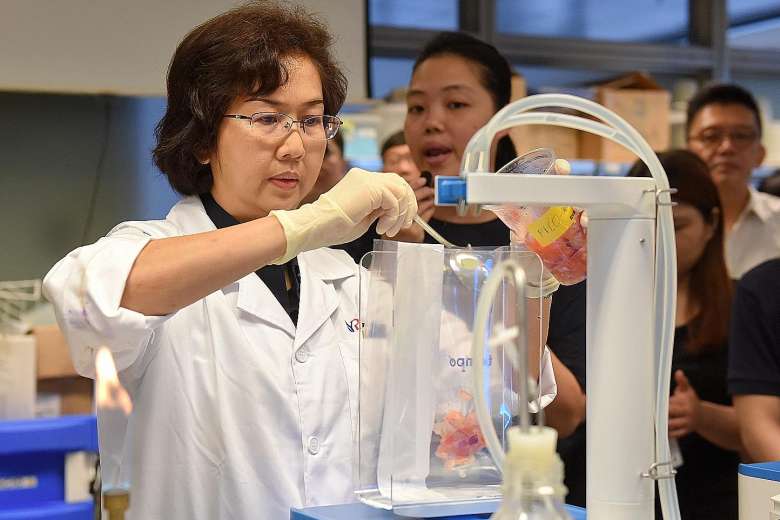Small and medium-sized enterprises in the food industry can look forward to launching their products more quickly, with the help of a new and more efficient food-testing system.
It was unveiled yesterday atthe official opening of the Nanyang Polytechnic (NYP)-bioMerieux Food Microbiology Rapid Testing Centre.
The new food-testing system, called Tempo, is an improvement over existing food tests, said Dr Gan Heng Hui, 40, assistant manager of NYP’s school of chemical and life sciences.
Companies can receive their test results in 24 hours, compared with at least two days using existing food tests.
The Tempo system is developed by bioMerieux, a French manufacturer of tests that detect diseases, infection or contamination.
The system uses a unique miniaturised version of the established Most Probable Number method, which allows 20 samples to be tested at any one time.
The method determines the approximate number of pathogens or micro-organisms, such as yeast or E.coli, present in a food sample.
A variety of pathogens in food ranging from meat and dairy products to processed foods can be detected using the automated food testing system. And with faster food safety tests, manufacturers can expect to significantly reduce the time spent on food inspections and speed up the release of their products on the market.
The new testing centre is part of the Food Safety Centre at NYP and it will also serve as a test bed for bioMerieux’s new equipment, as a reference laboratory for the firm in Singapore and South-east Asia.
Dr Joel Lee, 53, the director of NYP’s School of Chemical and Life Sciences, said the partnership with bioMerieux gives NYP students a chance to take part in food safety workshops and gain industry experience that will give them a head start.
Ms Leo Qiao Wei, 22, recently graduated with a diploma in food science and nutrition from NYP and is now a development technologist at the polytechnic’s Food Microbiology Rapid Testing Centre.
She said of the new food-testing lab: “It’s good, as you get to use new machines and it’s faster than conventional food-testing methods.”
Article & Photo from Straitstimes


